Abstract
PROBLEM BEING ADDRESSED: As the Canadian population ages, family physicians encounter increasing numbers of elderly people with medical, functional, psychological, and social difficulties. In the past two decades, most regions of Canada have developed systems of specialized geriatric services, available on a consultative basis, to assist family physicians evaluating and managing elderly patients with these difficulties. For many family physicians, however, it is often unclear which of their elderly patients are likely to benefit from referral to these geriatric services. OBJECTIVE OF PROGRAM: Using an interdisciplinary approach, specialized geriatric services seek to optimize health, maximize function, promote independence, and prevent or delay institutionalization of elderly people. Yet not all elderly people benefit from referral to specialized geriatric services. This article offers a clear and clinically practical framework to help family physicians identify elderly patients in their practices who are likely to benefit from referral to specialized geriatric services. MAIN COMPONENTS OF PROGRAM: By synthesizing previous work on the concept of frail elderly persons into a 2 x 2 matrix, the level and intensity of geriatric intervention most appropriate for different segments of the elderly population is clarified. CONCLUSIONS: Using the simple approach described in this article, family physicians should be able to use available geriatric resources easily and efficiently to optimize the health and function of their elderly patients.
Full text
PDF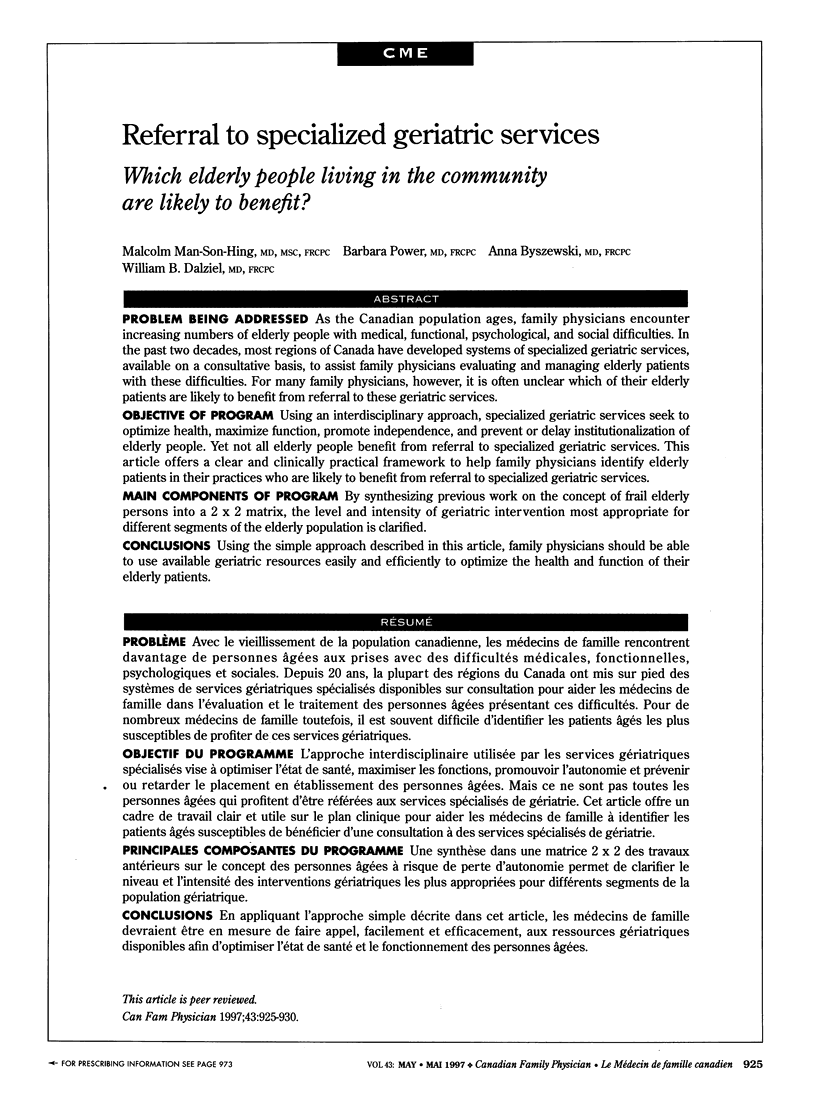
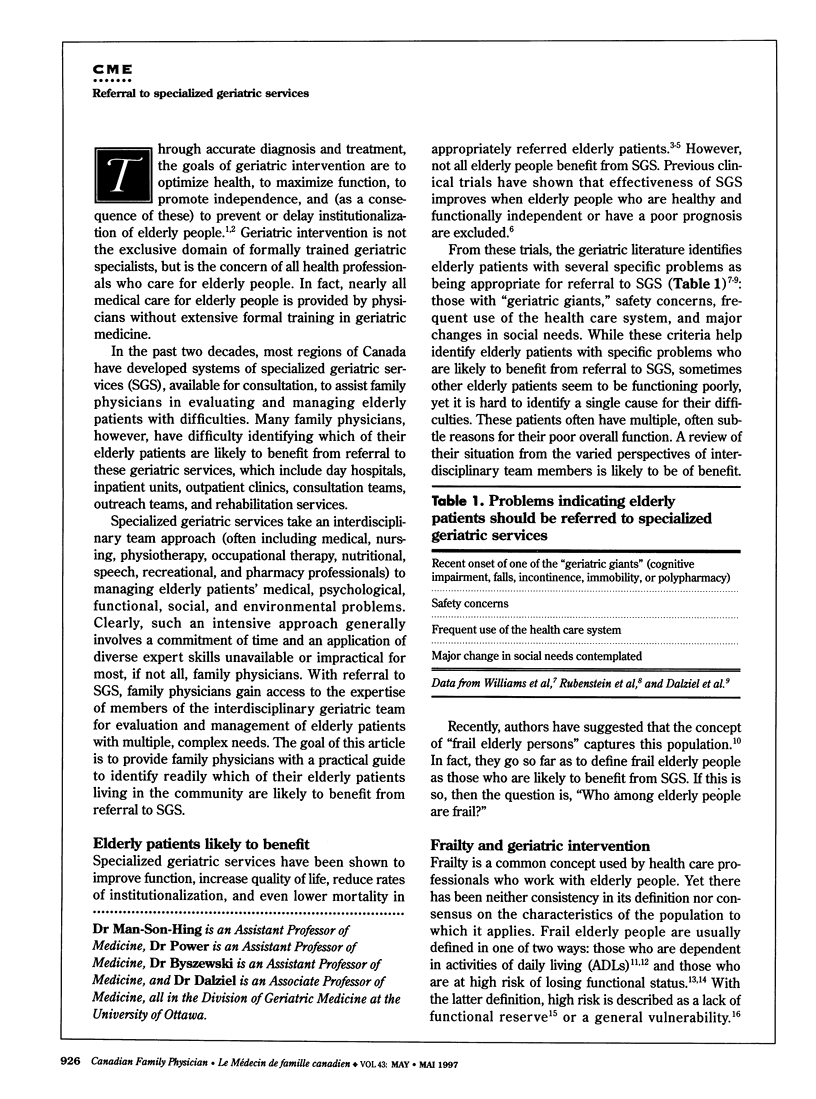
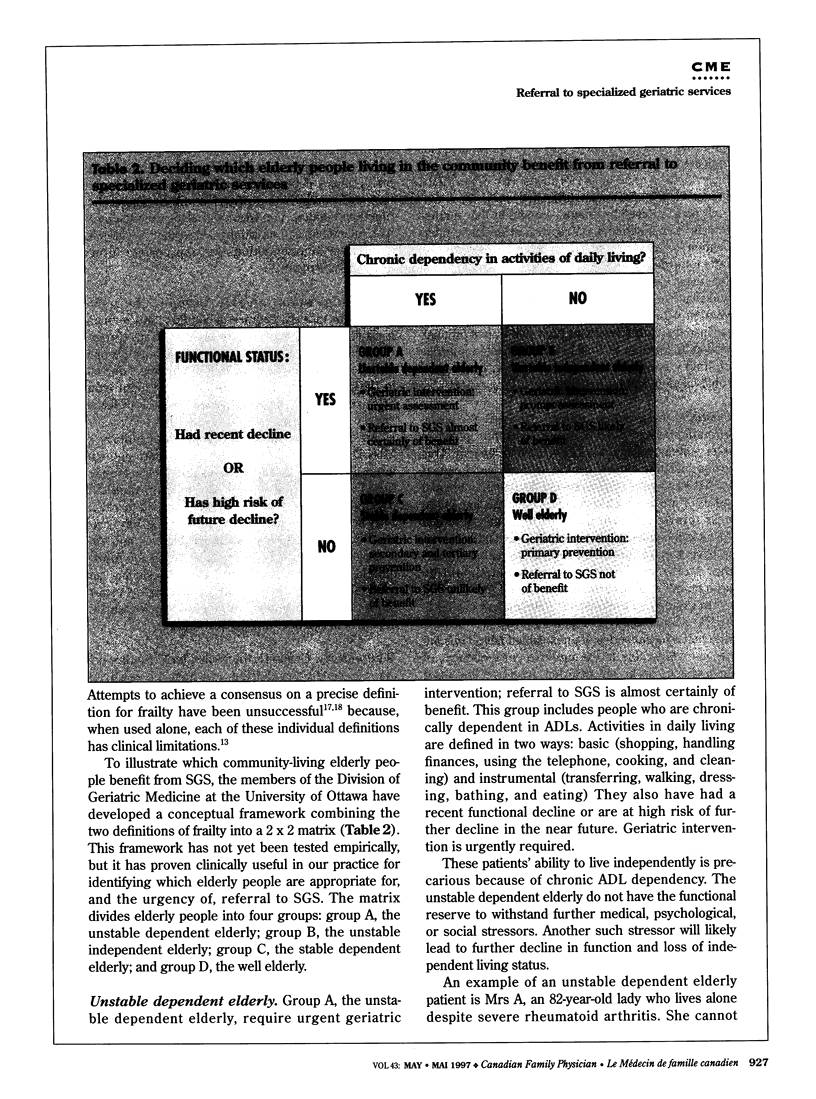
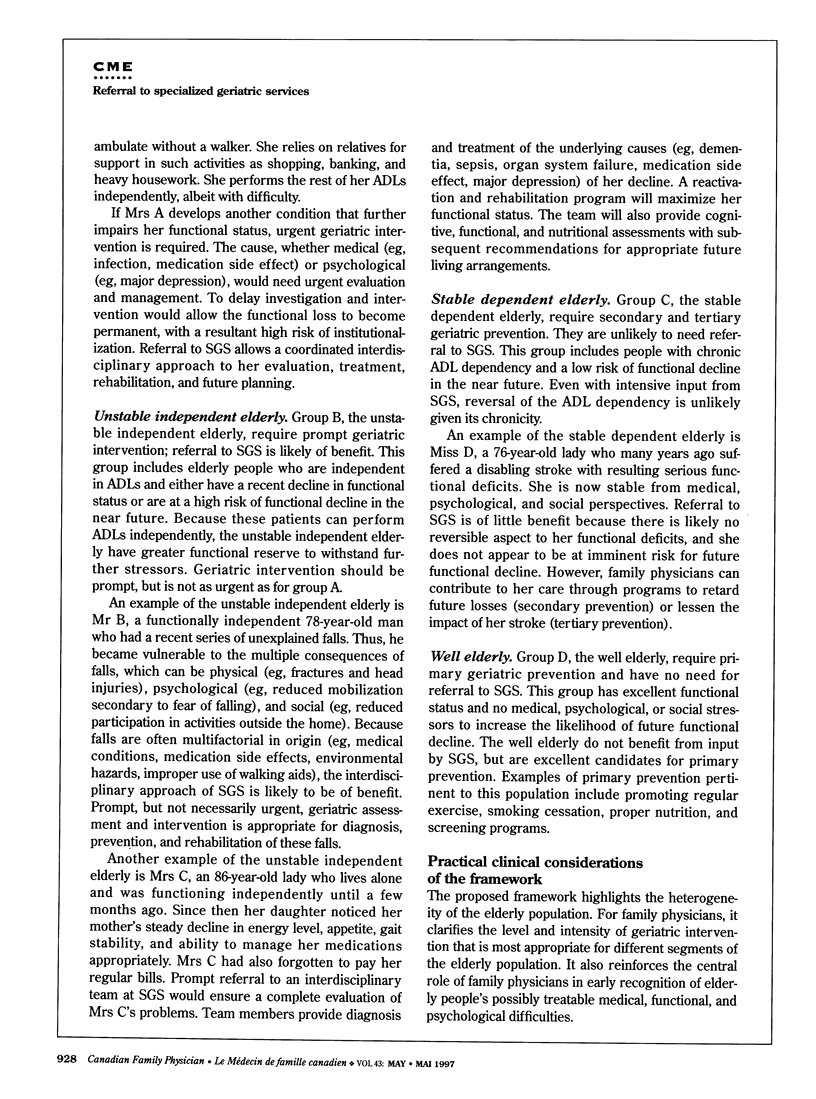
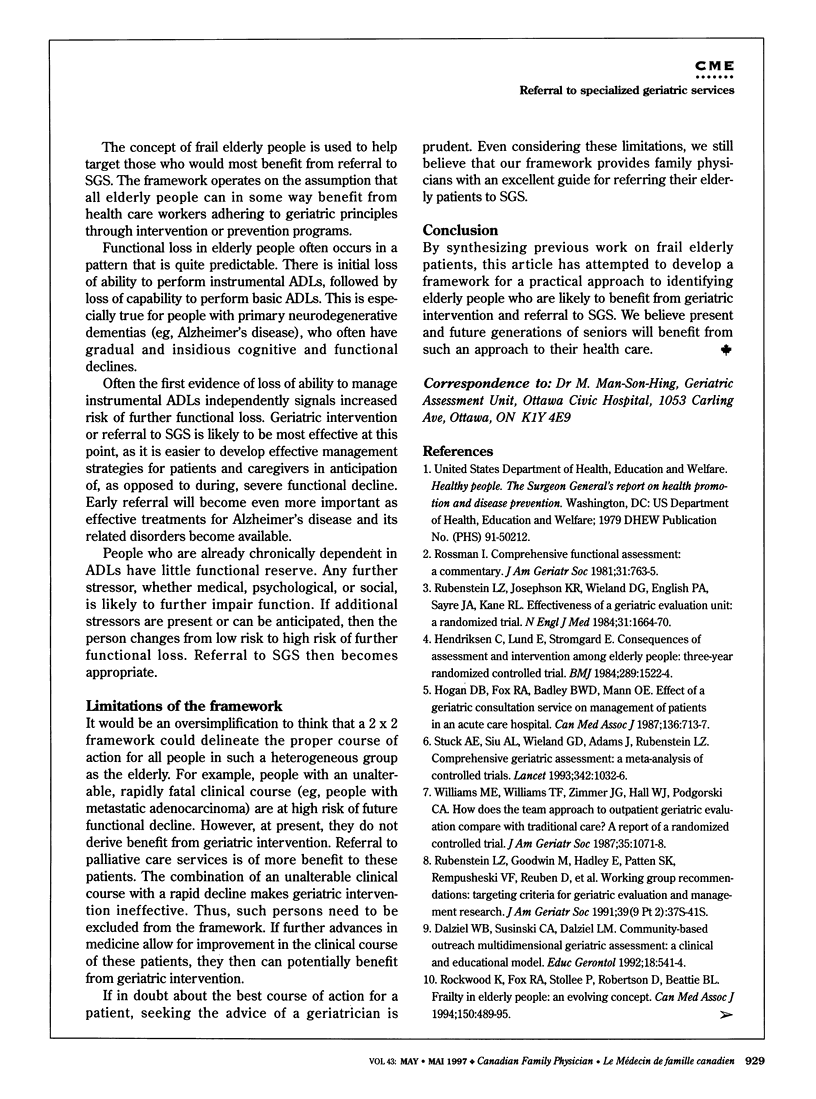
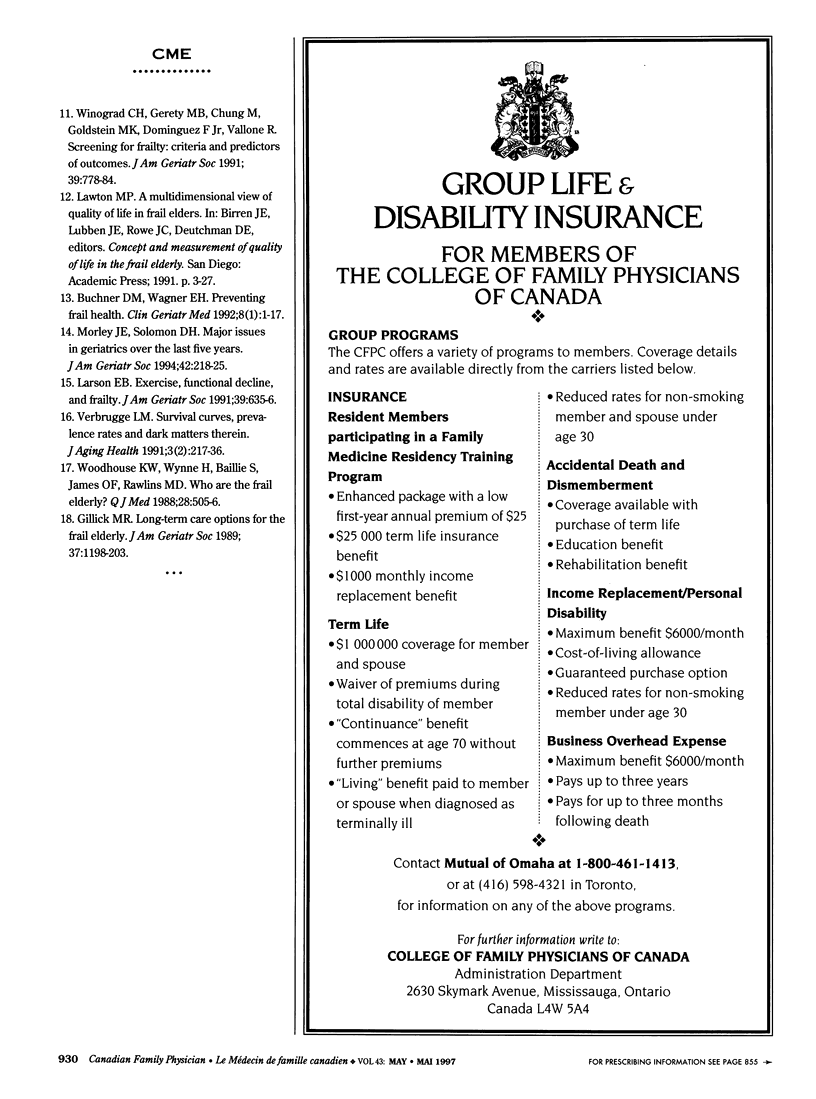
Selected References
These references are in PubMed. This may not be the complete list of references from this article.
- Buchner D. M., Wagner E. H. Preventing frail health. Clin Geriatr Med. 1992 Feb;8(1):1–17. [PubMed] [Google Scholar]
- Gillick M. R. Long-term care options for the frail elderly. J Am Geriatr Soc. 1989 Dec;37(12):1198–1203. doi: 10.1111/j.1532-5415.1989.tb06687.x. [DOI] [PubMed] [Google Scholar]
- Hogan D. B., Fox R. A., Badley B. W., Mann O. E. Effect of a geriatric consultation service on management of patients in an acute care hospital. CMAJ. 1987 Apr 1;136(7):713–717. [PMC free article] [PubMed] [Google Scholar]
- Larson E. B. Exercise, functional decline and frailty. J Am Geriatr Soc. 1991 Jun;39(6):635–636. doi: 10.1111/j.1532-5415.1991.tb03609.x. [DOI] [PubMed] [Google Scholar]
- Morley J. E., Solomon D. H. Major issues in geriatrics over the last five years. J Am Geriatr Soc. 1994 Feb;42(2):218–225. doi: 10.1111/j.1532-5415.1994.tb04957.x. [DOI] [PubMed] [Google Scholar]
- Rockwood K., Fox R. A., Stolee P., Robertson D., Beattie B. L. Frailty in elderly people: an evolving concept. CMAJ. 1994 Feb 15;150(4):489–495. [PMC free article] [PubMed] [Google Scholar]
- Rossman I. Comprehensive functional assessment: a commentary. J Am Geriatr Soc. 1983 Dec;31(12):763–765. doi: 10.1111/j.1532-5415.1983.tb03396.x. [DOI] [PubMed] [Google Scholar]
- Rubenstein L. Z., Goodwin M., Hadley E., Patten S. K., Rempusheski V. F., Reuben D., Winograd C. H. Working group recommendations: targeting criteria for geriatric evaluation and management research. J Am Geriatr Soc. 1991 Sep;39(9 Pt 2):37S–41S. doi: 10.1111/j.1532-5415.1991.tb05932.x. [DOI] [PubMed] [Google Scholar]
- Rubenstein L. Z., Josephson K. R., Wieland G. D., English P. A., Sayre J. A., Kane R. L. Effectiveness of a geriatric evaluation unit. A randomized clinical trial. N Engl J Med. 1984 Dec 27;311(26):1664–1670. doi: 10.1056/NEJM198412273112604. [DOI] [PubMed] [Google Scholar]
- Stuck A. E., Siu A. L., Wieland G. D., Adams J., Rubenstein L. Z. Comprehensive geriatric assessment: a meta-analysis of controlled trials. Lancet. 1993 Oct 23;342(8878):1032–1036. doi: 10.1016/0140-6736(93)92884-v. [DOI] [PubMed] [Google Scholar]
- Williams M. E., Williams T. F., Zimmer J. G., Hall W. J., Podgorski C. A. How does the team approach to outpatient geriatric evaluation compare with traditional care: a report of a randomized controlled trial. J Am Geriatr Soc. 1987 Dec;35(12):1071–1078. doi: 10.1111/j.1532-5415.1987.tb04923.x. [DOI] [PubMed] [Google Scholar]
- Winograd C. H., Gerety M. B., Chung M., Goldstein M. K., Dominguez F., Jr, Vallone R. Screening for frailty: criteria and predictors of outcomes. J Am Geriatr Soc. 1991 Aug;39(8):778–784. doi: 10.1111/j.1532-5415.1991.tb02700.x. [DOI] [PubMed] [Google Scholar]
- Woodhouse K. W., Wynne H., Baillie S., James O. F., Rawlins M. D. Who are the frail elderly? Q J Med. 1988 Jul;68(255):505–506. [PubMed] [Google Scholar]


